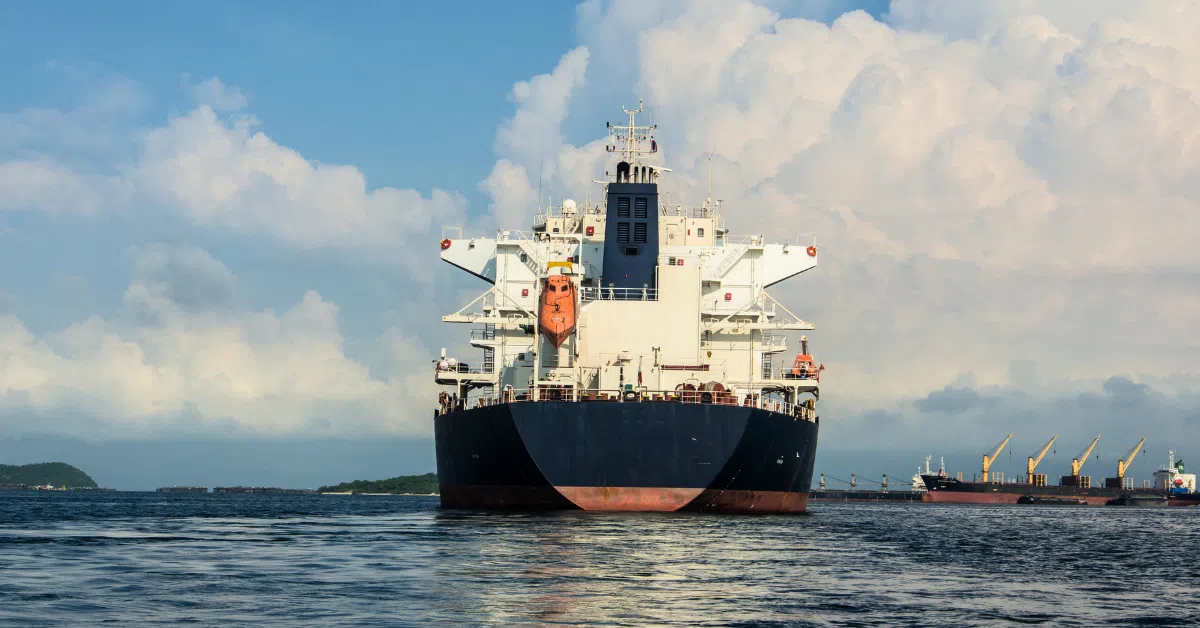Member states of the International Maritime Organization are preparing for a showdown over new decarbonization rules on maritime energy, which have pitted the EU against the US while dividing opinions among shipping industry participants.
During Oct. 14-17, the UN agency’s Marine Environment Protection Committee will hold an extraordinary session to discuss the adoption of the Net-Zero Framework, with a vote highly anticipated as both camps show no signs of compromising.
The US, which has opposed the regulatory piece, reiterated ahead of the meeting that its supporters could face US port fees or ban, visa restrictions, sanctions, or commercial penalties associated with US government contracts.
“The United States will be moving to levy these remedies against nations that sponsor this European-led neocolonial export of global climate regulations,” Secretary of State Marco Rubio, Secretary of Energy Chris Wright and Secretary of Transportation Sean Duffy said in a joint statement Oct. 10.
“We will fight hard to protect our economic interests by imposing costs on countries if they support the NZF.”
In response, the European Commission issued a statement Oct. 12, reinforcing European countries’ support for the framework due to its potential to decarbonize the shipping sector and ensure a global level playing field.
“The EU views the Net-Zero Framework as a significant milestone and calls for its adoption at IMO,” the EU’s executive arm said. “After the adoption, the European Commission will review the relevant EU regulations in place.”
Brussels has extended its Emissions Trading System to cover shipping since 2024, while imposing a cap on the greenhouse gas emissions intensity of marine energy in EU-related trades from January 2025.
This April, the IMO framework was approved in a 63-16 vote, with support from EU countries, China, Japan, Brazil, the UK, Singapore, and some of the world’s largest flag states like Panama, but opposition from some Middle Eastern oil-producing countries.
The US abstained from the vote then, but a State Department spokesperson confirmed to Platts, part of S&P Global Commodity Insights, that an interagency delegation will be present this time.
Adoption of the new regulation requires a two-thirds majority of the International Convention for the Prevention of Pollution from Ships’ Annex VI signatories, whose flag states need to administer at least half of the world’s fleet in gross tonnage.
Fotini Ioannidou, director of waterborne transport at the European Commission’s Directorate General for Mobility and Transport, told ship.energy that “a large majority” — including all EU member states — would back the rules again in the coming days.
Fuel economics
Some of the largest shipping and bunker industry associations have voiced support for the framework, saying a uniform set of rules would benefit companies in maritime transportation.
“Only global rules will decarbonize a global industry,” the Asian Shipowners’ Association, European Community Shipowners’ Association, International Association of Ports and Harbors, International Bunker Industry Association, International Transport Workers’ Federation, International Chamber of Shipping and World Shipping Council said in a statement earlier this month.
“Without the Framework, shipping would risk a growing patchwork of unilateral regulations, increasing costs without effectively contributing to decarbonization.”
The IMO rules are designed to reduce the price gap between fossil and sustainable marine fuels by placing a cost on GHG from marine energy use from 2028, and some critics, including the US, have expressed worries over their inflationary effects.
The monthly average delivered bunker price for 0.5% sulfur fuel oil, the most common bunker type, was $/metric ton in Singapore last month, compared with $/mtVLSFOe for LNG, $/mtVLSFOe for B24 biobunker fuel with 24% used cooking oil methyl ester, and $1,/mtVLSFOe for 100% sustainable methanol, according to the Platts bunker cost calculator.
Contentious debates
Last month, some of the largest oil shipping companies, like Frontline and Maran Tankers, expressed concerns that the current regulatory design would call for “an abrupt switch” toward decarbonization technologies that have yet to be fully developed.
Classification society DNV and American Bureau of Shipping said that the proposed regulation would punish LNG use after 2030 and offer no clear decarbonization pathway due to its flaws.
However, 26 green fuel producers, including European Energy, MOEVE and Liquid Winds, have called on IMO member states to adopt the framework and provide more incentives to use e-fuels.
“Without immediate and unambiguous signals for the production and uptake of e-fuels, the global fleet risks ‘locking in’ short-term fuel pathways that undermine both ambition and cost-effectiveness over time,” the companies said in a statement Oct. 13.
Based on Boston Consulting Group’s estimates, the market for low-carbon marine fuels could be over $10 billion in 2028 before a further hike to exceed $100 billion in 2035 due to the framework’s implementation.
“These regulations will transform the competitive landscape not just for shippers but for developers of low-carbon fuels and players looking to invest in them,” BCG said in a note.
Source: Platts





